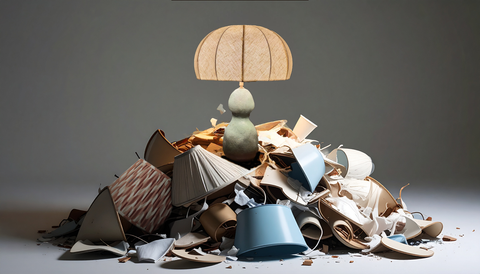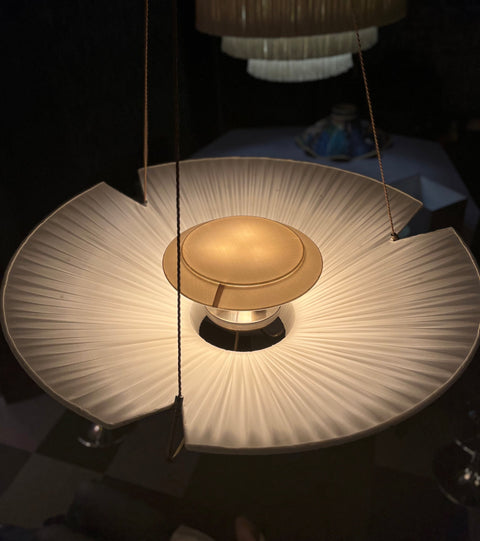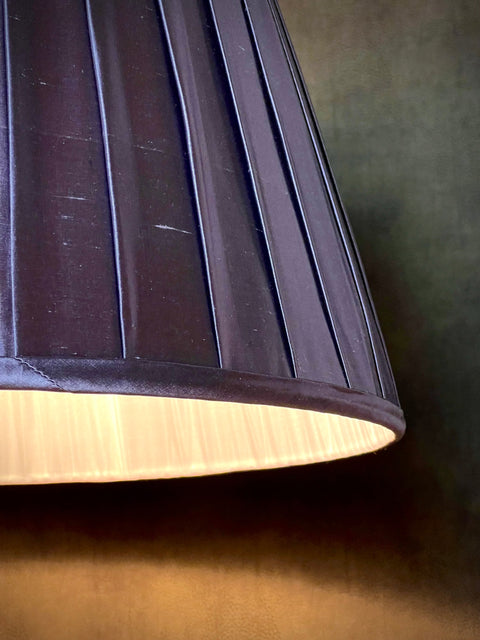Beyond Convenience: Throwaway Culture is dead, long live Bespoke!

By Tom Acciarini, Business Development and Marketing Manager, Iberian Lighting
In the age of next-day delivery and endless catalogues, it has never been easier to furnish a space quickly. Yet one must ask: Are we truly curating our interiors, or are we simply filling them? For our clients at Iberian Lighting, where we design and manufacture bespoke lighting solutions, this distinction matters. We are increasingly approached by professionals who have grown weary of compromise. Their clients are beginning to see through the promise of convenience and recognise that the fast and the convenient are seldom built to last.
The dominance of catalogue-driven purchasing has cultivated a mindset where choices are restricted to what is available. While this may suffice for high-volume projects, it frequently results in poor design and short-lived solutions. Products that appear suitable at the outset often disappoint once installed due to poor fit, bland aesthetics and inflexible integration. These are symptoms of a wider issue: design decisions driven by supply cost, not intent.
In the article What happened to Design?, we challenged the design world’s acceptance of mediocrity. We argued that commercial pressures have pushed creativity to the margins and prioritised uniformity over individuality. This tension is particularly acute in lighting, where technical performance, atmosphere, and architectural sensitivity must work in concert. Yet catalogue pieces are rarely designed with this aesthetics in mind. They tend to be average, not exceptional.
The consequences however are not only aesthetic. The environmental toll of short-term interior solutions is significant. According to the Furniture Industry Research Association (FIRA), over 22 million pieces of furniture are discarded annually in the UK (FIRA, 2023), many due to premature obsolescence or poor compatibility with evolving spaces. The lighting sector faces similar challenges. The Lighting Industry Association (LIA) continues to highlight the unsustainable rise of non-repairable luminaires and the widespread use of materials that do not lend themselves to disassembly, upgrade, or reuse.
Bespoke design offers a meaningful alternative. It does not begin with a product; it begins with a question: what should this piece do? At Iberian, our process is defined by dialogue. Clients often approach us with a vision, not an SKU. This opens a more generative path, one where technical requirements, architectural context, and aesthetic nuance can be reconciled rather than compromised.
As I explained in Bringing Design Visions to Life Without Compromise, our role is not simply to manufacture but to help you to interpret. We can translate intent into form and ensure engineering is in balance with expression. This is particularly important in commercial interiors, where lighting is not just decorative but can be instrumental to user experience.
Future-proofing is a natural advantage of bespoke work. When we create a bespoke luminaire for a hotel atrium or hospitality venue long life and service can be a part of the discussion. Can it be maintained without specialist tools? Will its materials age gracefully? Is it compatible with emerging lighting protocols? These kinds of considerations will shape the technical brief making sure that the result is not just fit for purpose today but capable of adapting tomorrow.
A recent project for a heritage venue in southern England underscored the value of this approach. The client needed lighting that was sympathetic to the building’s listed interior but fully controllable via a DALI system. We developed a made-to-order solution that complimented the interior and enabled efficient maintenance access. The result honoured both past and future.
Beyond material resilience lies a more human quality, that of emotional durability. Bespoke pieces often carry a story: of the makers, the materials, the context. This narrative value fosters care. One is far less likely to discard an object that has been made specifically for one’s space. Like tailored clothing or artisan furniture, such pieces are chosen with clarity and kept with pride.
Of course, the perception persists that bespoke means costly. This may be true at the lowest price point, but it is rarely true at the level of quality and longevity our clients now demand. A well-made bespoke fitting often costs less over its lifetime than a mass-produced alternative that must be replaced, modified, or tolerated. And the qualitative difference, in terms of impact and satisfaction, is rarely in doubt.
The British Institute of Interior Design (BIID) reported in 2024 that demand for custom lighting among its members is growing steadily, driven by sustainability targets, client expectations, and the desire for greater design coherence (BIID, 2024). Bespoke is no longer a fringe consideration. It is increasingly recognised as a necessary mode of practice for serious design outcomes.
At Iberian, we support this shift by being transparent with our clients about lead times, options, and constraints. The process is collaborative. We do not promise instant solutions. Instead, we offer lighting that fits your design and is truly integrated into the identity and performance of a space.
Rejecting the throwaway culture is not simply about material choice. It is about mindset. Bespoke design affirms the value of care in making and specifying. It says that we do not design for novelty, but for meaning. Our spaces deserve more than placeholders. Lighting, when done properly is not a design accessory but an essential component in a successful interior design.
Ultimately, bespoke design is an invitation to question and choose with purpose. It will not always be the quickest path, nor the cheapest. But it is one that leads to interiors that endure, delight, and evolve with dignity.
Key Takeaways:
- Catalogue-driven design often results in poor fit, limited lifespan, and unnecessary waste.
- Bespoke solutions enable architectural sensitivity, technical precision, and aesthetic cohesion.
- Collaboration between client and maker is central to durable, adaptable design outcomes.
- Emotional connection to bespoke pieces encourages long-term ownership and reduces discard rates.
- With greater process transparency, bespoke design is increasingly viewed as practical, not elite.
Sources:
- FIRA (2023), UK Furniture Waste Report
- Lighting Industry Association (2024), Sustainable Product Design Guidelines
- British Institute of Interior Design (2024), Annual Trends and Sustainability Survey
- Tom Acciarini, What Happened to Design?, Iberian Lighting Blog, Jan 2025
- Tom Acciarini, Bringing Design Visions to Life Without Compromise, Iberian Lighting Blog, Mar 2025










Comments (0)
There are no comments for this article. Be the first one to leave a message!